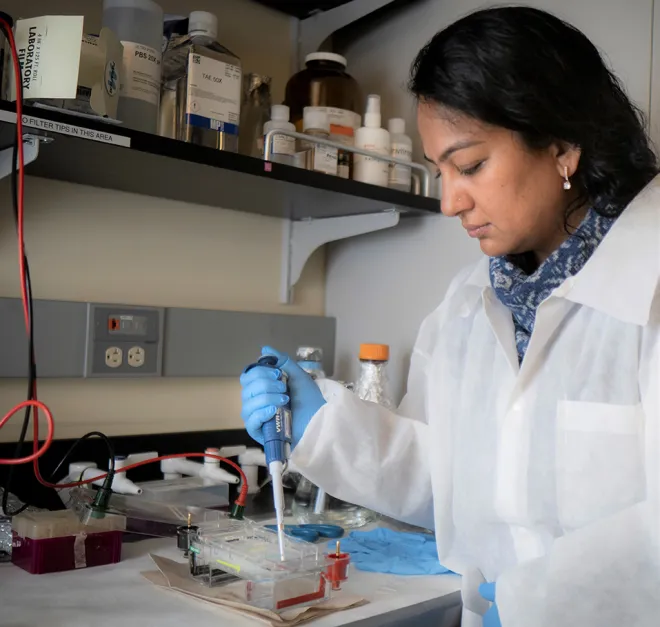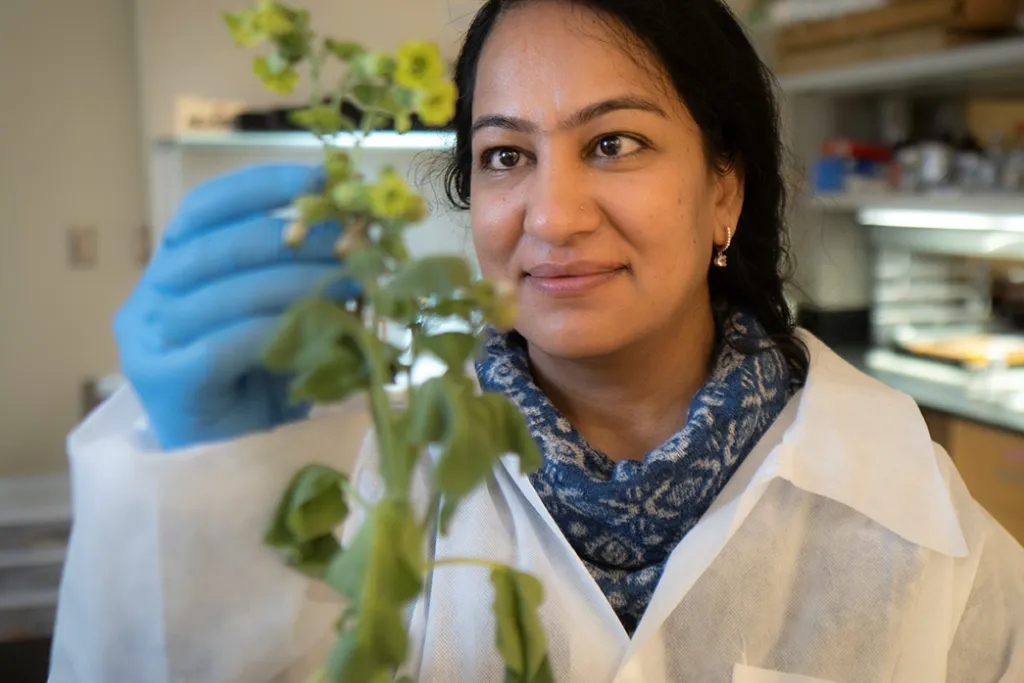This month USDA’s National Institute of Food and Agriculture (NIFA) is highlighting NIFA-funded researchers who are creating more and better markets for producers and consumers.
Get know Dr. Poonam Sharma, Research Assistant Professor at Oklahoma State University, and her work in the following conversation:
Tell us your journey and how your interest in agriculture developed.

More than half of the population of India relies on agriculture as the primary source of livelihood. While visiting my grandparents during summer holidays, I used to see the hardships of farming in the hills in Himachal Pradesh, one of the states in northern India. That exposure left a footprint. I was always curious to understand which crops were grown and in what season. My career has been multidisciplinary, comprising research in human infectious diseases, viruses infecting poultry and antimicrobial resistance in foodborne pathogens. So, getting an opportunity to learn about plant disease diagnostics was a great milestone in my career as I would study how microbes affect the three fabrics of life – human, animals and plants.
Describe your involvement with NIFA and your role.
I am a co-project investigator of the Diagnostic Assay Validation Network (DAVN) project. DAVN, which is funded by NIFA, coordinates, and harmonizes diagnostic assay development and validation for plant diseases. I will be working on providing assets and resources for the DAVN online portal and performing diagnostic assay development research. Prior to this project, I worked on a seed grant project funded by NIFA. The project was aimed to identify people, resources and gaps in tactical diagnostic assay development and validation research for U.S. agricultural biosecurity.
Could you catch us up on one of your NIFA-funded projects?
NIFA, as we all know, funds projects that address key national and global challenges. Our project focuses specifically on the tactical sciences involved in accurate diagnoses of plant pathogens to safeguard U.S. production systems, ensure safe and beneficial trade, to assure food security and environmental protection. Our project has three goals: develop a sustainable, interactive online platform to house resources and facilitate stakeholder communications; conduct high priority cross-cutting research; and conduct extensive outreach and Extension to inform and engage the U.S. plant pathology community in DAVN activities.
This project will be the next step in coordinating the fragmented diagnostic assay development pipeline and disparate levels of validation to strengthen the U.S. biosecurity. This is a new project, and we hope that, by having this ongoing research in our institute, it will bring more recognition and engagements as more students will be interested in getting trained to pursue a career in agricultural biosecurity.
How has NIFA funding shaped your professional development as a scientist?
NIFA has uplifted my career by several folds. It opened doors to understand the tactical sciences in agricultural biosecurity. I have acquired a vast knowledge and experience in plant diseases diagnostic assay and validation research. I will always be thankful to my supervisor who is also the project investigator of this project.
What advice do you have for current students who may be interested in pursuing a similar career path?
The biosecurity and microbial forensics field will help you understand biosafety, surveillance, bioterrorism, international trading and regulations, environmental and socio-economic issues in any country and much more. If anyone is interested in equipping themselves with skills and knowledge of dealing with invasive pathogen outbreak during an emergency situation, this interdisciplinary field is for you.
Top image: Dr. Poonam Sharma, a research assistant professor at Oklahoma State University, runs diagnostic tests on plant matter in her laboratory at the OSU Biosecurity and Microbial Forensics. Photo by Todd Johnson, OSU Agricultural Communications Services.

